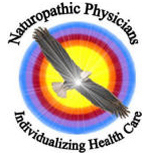 |
 | |||||||||||||
|
About Naturopathic MedicineWho are NDs?Naturopathic physicians (N.D.s) are the only holistic health care providers clinically trained and board certified to provide primary care. The scope of primary care for naturopaths is actually broader than for conventionally trained medical doctors, osteopaths, physician's assistants, and nurse practitioners because of the emphasis on wellness and prevention that is central to naturopathic philosophy. Because of this emphasis, naturopathic physicians are not only of service to clients who are sick or in need of general medical screening, but also, to healthy individuals interested in maintaining and/or improving their health status. Naturopathic physicians receive training in the basic medical sciences and clinical medical sciences, including both conventional, as well as holistic and functional diagnostics. Naturopathic modalities include clinical nutrition, botanical medicine, homeopathy, pharmacology, hydrotherapy, physical medicine, minor surgery, counseling, obstetrics (requires additional certification), IV therapy (requires additional certification), and more. What is Naturopathic Medicine?(The following text are excerpts from the article Introduction to Naturopathic and Classical Chinese Medicine by Ms. Trish Myers, M.A. and are reproduced here with permission from the National College of Naturopathic Medicine) Naturopathic medicine is a patient-centered system of primary care that diagnoses and treats a diversity of medical conditions in various stages of pathology, manifestation, and presentation. In clinical practice, naturopathic physicians employ the roster of standardized laboratory and imaging tests where necessary to arrive at an accurate diagnosis. In addition, the naturopathic diagnostic approach encompasses a repertory of bio-medical procedures equipped to assess the functional status of the vital organs and their associated systems with a degree of sensitivity and specificity not offered by a majority of testing methods resorted to in conventional or mainstream medicine. With respect to the often complex web of symptoms presented in cases of chronic, long-term illness, the naturopathic emphasis on assessing functional health of the body in addition to evaluating the pathology of a certain disease process offers a deeper look at the nature of challenging cases. A disease bearing one name, one title, such as arthritis or fibromyalgia, for example, may involve a host of symptoms issuing from several organ systems individually burdened, though in varying degrees, by any of a combination of metabolic imbalances, inflammation, or bacterial, or parasitic infection. A hallmark of naturopathic practice involves spending a good deal of time with the patient, listening to the narrative of the condition from the patientís point of view. The naturopathic physician faces the challenge of noting the salient features of a case without getting lost in the welter of detail that may overwhelm and undermine the diagnostic process. |
|||||||||||||
